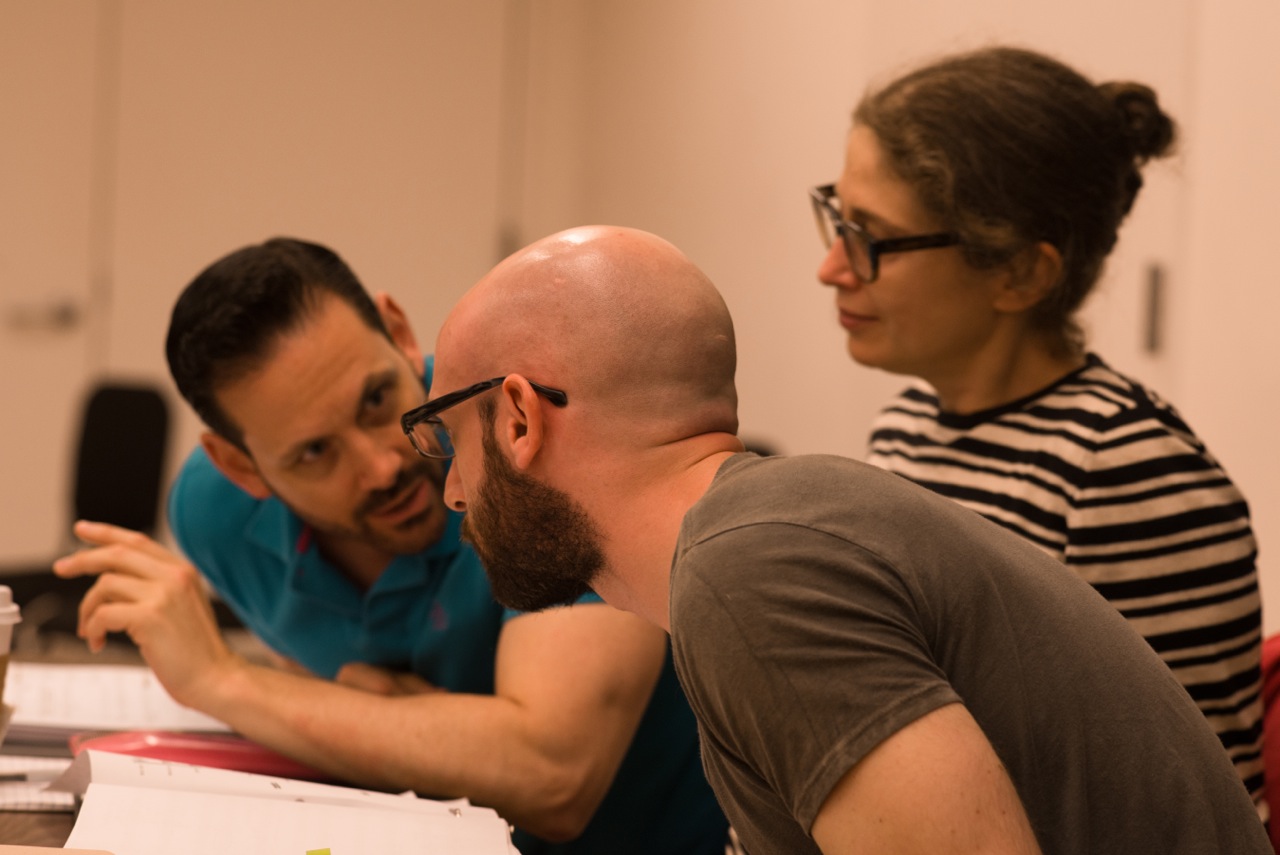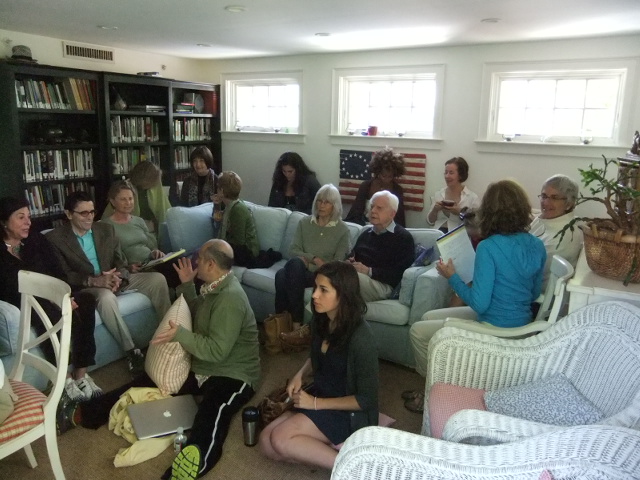I stumbled across this article about the Carlisle Project in Pennsylvania, a workshop for emerging choreographers. I found it fascinating that this question was already being asked in 1986: At this point, a generation of choreographers has been lost. Who will step up to take their place?
There has been a clear lack of resources and initiatives in the dance community in recent years devoted to the development of choreography. What is the best model to nurture young choreographers and empower them with the tools to be the next great dancemakers in the 21st century?
Opera is currently reviving and reinventing itself for modern audiences, and one organization in particular has had a fair amount of success in creating new operatic works. New York City's American Lyric Theater (ALT) currently houses the Composer Librettist Development Program (CLDP), the only full time program for emerging operatic writers in the country. They open tonight and run through June 3.

Lawrence Edelson with composer Jeremy Howard Beck and librettist Stephanie Fleischmann in rehearsal for "The Long Walk." Photo by Steven Meyer.
I asked ALT founder Lawrence Edelson (who was an apprentice with Boston Ballet before going on to work with Ballet West and Ballet Met Columbus) about the differences between the creation of new works Opera as opposed in Dance. "Choreographers start as dancers, and dancers spend a lot of time focusing on technique. It's from that solid grounding in technique and exposure to different choreographers' work that new choreographers begin to blossom, pushing what is merely technical, to develop their own vocabulary and their own voice. But it starts with technique. Opera composers and librettists need the opportunity to build skills directly related to Opera that they might not get in a University or Conservatory setting."
Since 2005 when he founded ALT, Edelson has created an organization that focuses on identifying gifted emerging operatic writers, providing those writers with unprecedented professional mentorship, commissioning their first major operatic works, and helping place those operas with producing companies across the country. "There is no clear path to becoming a writer for the opera stage. Aspiring librettists usually come from playwriting or poetry backgrounds, often with wonderful ideas, but a significant lack of experience and exposure in Opera."
The first year of the program, students are focused on the skills and process of creation -- not the end product. They receive over 60 classes and workshops, totaling over 200 hours over a 10 month period. There are group sessions as well as private mentorships
A select group of students are then selected to continue in the program, receiving a commissioning fee and the chance to workshop the work, before being paired with opera companies willing to commission a full production of the work.
Sounds like we need something like this too: how do we create a model that works for today's dance community?
As dance moved away from the constraints of narrative in the 20th century, the need for librettists in dance waned, and the focus of the movement vocabulary itself took center stage. For the first time, the choreography itself was viewed as more than just a vehicle for the star performers. George Balanchine, founder of New York City Ballet, famously eschewed the traditional star-based hierarchy in his work, and instead sought to made his choreography the main attraction.
Where do the new works in the dance community come from? Do we have a responsible and sustainable model in place to develop not just new choreography, but new choreographers? Many companies have developed a resident choreographer model, where a company enjoys a sustained relationship with one choreographer, whose unique voice helps shape and guide the dancers and artistic direction of the company for the duration of the relationship. A great contemporary example of this is Alexei Ratmasky at American Ballet Theatre. As a former Principal Dancer with Dutch National Ballet, his voice as a choreographer was already being developed while he was a dancer. He will bring his experience and style to a generation of ABT dancers; his contract was recently extended to 2023. Even here at Armitage Gone! Dance, we offer creative residencies to emerging choreographers, providing free studio space while the company is on tour. Pending funding, we would love to develop this program further.
A new Think Tank in the dance community met for the first time this past week. Brainchild of Wendy Taucher, the World Choreographic Institute, a select group of artistic leaders and choreographers, convened at Martha's Vineyard to discuss "choreographic principles and challenges that are common to all live dance vocabularies from ballet to modern to Broadway and beyond." Attending contributors included David Dorfman, Sarah Frank, Lori Klinger, Karine Plantadit, Claire Porter, Jock Soto, Lynne Taylor-Corbett, David Vaughan, Carol Walker, and Edward Villela, who said the weekend "was a wonderful opportunity to get together with other artists from diverse dance disciplines. Since I have spent my life in classical ballet it was inspiring to learn more about modern dance choreography. The exchange of ideas this week in the Think Tank was a revelation...we are working to make significant events advocating for and educating about the art of choreography happen on New York City and beyond."
Participants of the 2013 Inaugural World Choreographic Institute. Photo: Bruce Naugle
Discussions like these are becoming increasingly critical. The dance world is transitioning, and with the loss in recent years of artists like Merce Cunningham and Pina Bausch (and countless others who have made tremendous choreographic impact on the landscape of Dance), who challenged us to question the definition of choreography itself, we as a community are in dire need to develop new masters of the craft. The question is not who is stepping up to fill this void, but how we as a community are preparing our artists of tomorrow to make work that engages a 21st century audience.

